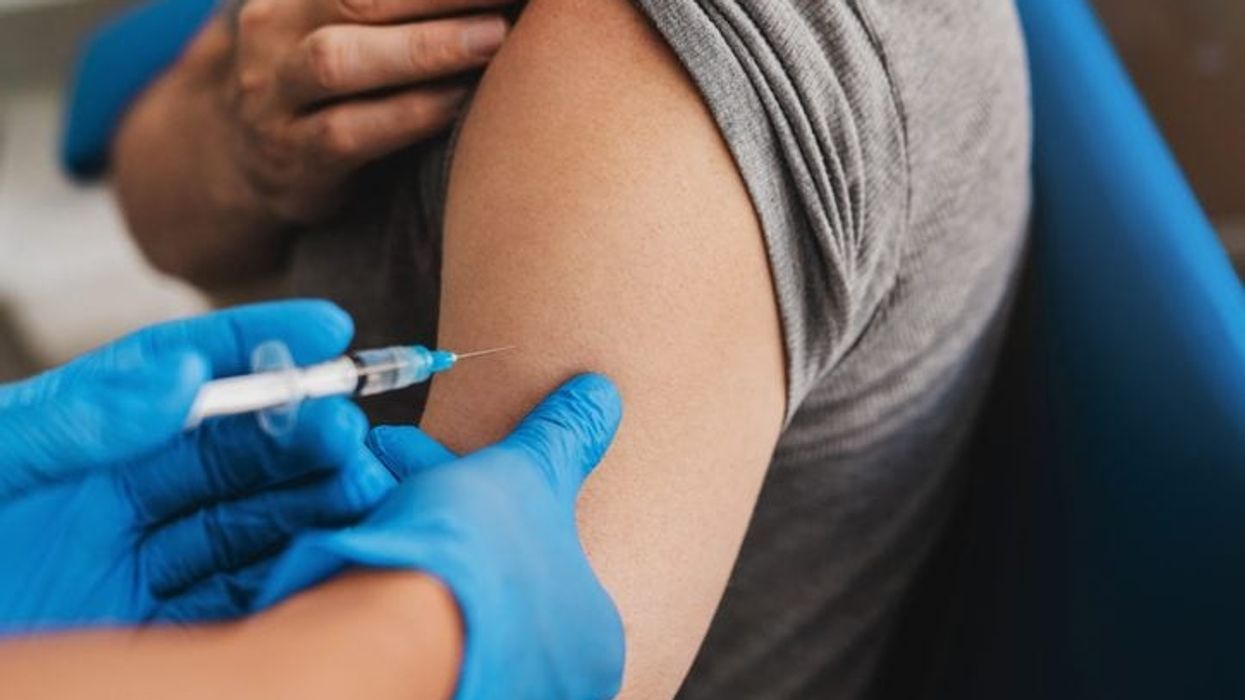A single-dose vaccine for chikungunya demonstrates safety and induces a robust immune response against the viral disease, according to the first phase 3 trial of the preventive published in The Lancet journal.
The VLA1553 vaccine, developed by French biotech company Valneva, was evaluated in this trial.
However, due to the study's geographical limitations, the researchers were unable to investigate the vaccine's efficacy in protecting against subsequent disease, as the trial was not conducted in regions where chikungunya is endemic.
Chikungunya is a mosquito-borne disease caused by the chikungunya virus (CHIKV), which is known to be endemic in certain areas of Africa, Asia, and the Americas.
Typically, patients experience fever approximately four to eight days after being bitten by an infected mosquito carrying the CHIKV.
Symptoms of chikungunya include headaches, fatigue, nausea, and severe muscle and joint pain. The joint pain can be debilitating and usually persists for a few days, but in some cases, it may extend for weeks, months, or even years.
While serious illness and fatalities from chikungunya are rare, older individuals and newborn babies face a higher risk.
Presently, there are no approved vaccines available to prevent CHIKV infection or effective antiviral treatments for the disease.
"This could be the first chikungunya vaccine available for people living in endemic regions, as well as for travellers to endemic areas or areas at risk for an upcoming outbreak," said study lead author, Martina Schneider, Clinical Strategy Manager at Valneva.
"Our promising results showed good persistence of antibody levels after vaccination, which is important considering that chikungunya outbreaks may recur suddenly. As age is a risk factor for severity and mortality of chikungunya disease, the strong immune response observed in older participants might be particularly beneficial," Schneider said in a statement.
Study author Katrin Dubischar, Program Director, Chikungunya Vaccine at Valneva noted that there is no dedicated treatment or vaccine available against chikungunya.
"Moreover, it is currently regarded as one of the viruses most likely to spread globally, and studies have shown that climate change is driving the spread of the mosquitos that carry it into new areas of the world. Therefore, having an effective vaccine is important for preparedness for future outbreaks," Dubischer said.
The study involved the participation of 4,115 healthy adults from 43 study sites located in the US.
Out of these participants, 3,082 individuals received a single dose of VLA1553 through an arm injection, while 1,033 individuals received a placebo.
The safety analysis included all participants, but the assessment of immune response was conducted only in a subgroup of 362 participants (266 who received the vaccine and 96 who received the placebo).
The immune responses of the participants were evaluated at one week, 28 days, three months, and six months after vaccination.
Additionally, they recorded any adverse events experienced for 11 days after receiving the vaccine using an electronic diary.
Following the administration of a single dose, VLA1553 elicited antibody levels that were considered to provide protection against the disease in 99 per cent (263 out of 266) of the participants.
The researchers noted that there was no significant difference in immune response based on age.
Overall, VLA1553 was well tolerated across all age groups, and the majority of adverse events reported were mild to moderate in nature.
Among those who received the vaccine, the most reported adverse events included headaches, fatigue, muscle pain, joint pain, and pain at the injection site.
After a six-month period, the group of individuals who received VLA1553 reported a higher number of adverse events compared to those who received the placebo.
However, the safety profile of the vaccine in older adults was found to be similar to that observed in adults.
The authors of the study acknowledge certain limitations.
Firstly, since the study was not conducted in an endemic region, the participants' pre-existing immunity to the chikungunya virus remains unknown, as does the safety of the vaccine within this specific population.
Furthermore, as the vaccine is developed using a weakened form of the live virus, it may not be suitable for individuals with compromised immune systems or pregnant women.
The authors also highlight the necessity of administering a chikungunya vaccine to children in order to effectively control the endemic disease. To assess the safety and efficacy of the vaccine in this age group, an ongoing study is currently being conducted in adolescents residing in endemic areas of Brazil.
Kathryn Stephenson, from Centre for Virology and Vaccine Research at the Beth Israel Deaconess Medical Center, who was not involved in the study said, “The positive results of this trial are very good news for CHIKV pandemic preparedness.
"CHIKV and other arboviral infections continue to be global threats, spurred on by the expansion of mosquito habitats because of climate change and globalisation of trade and travel.”
Stephenson added, "Further studies of VLA1553 in endemic regions and expanded populations, such as an ongoing trial in adolescents in Brazil will be critical to affirming VLA1553's value for CHIKV prevention, as will be real-world effectiveness studies in the context of actual CHIKV outbreaks.”
(PTI)




